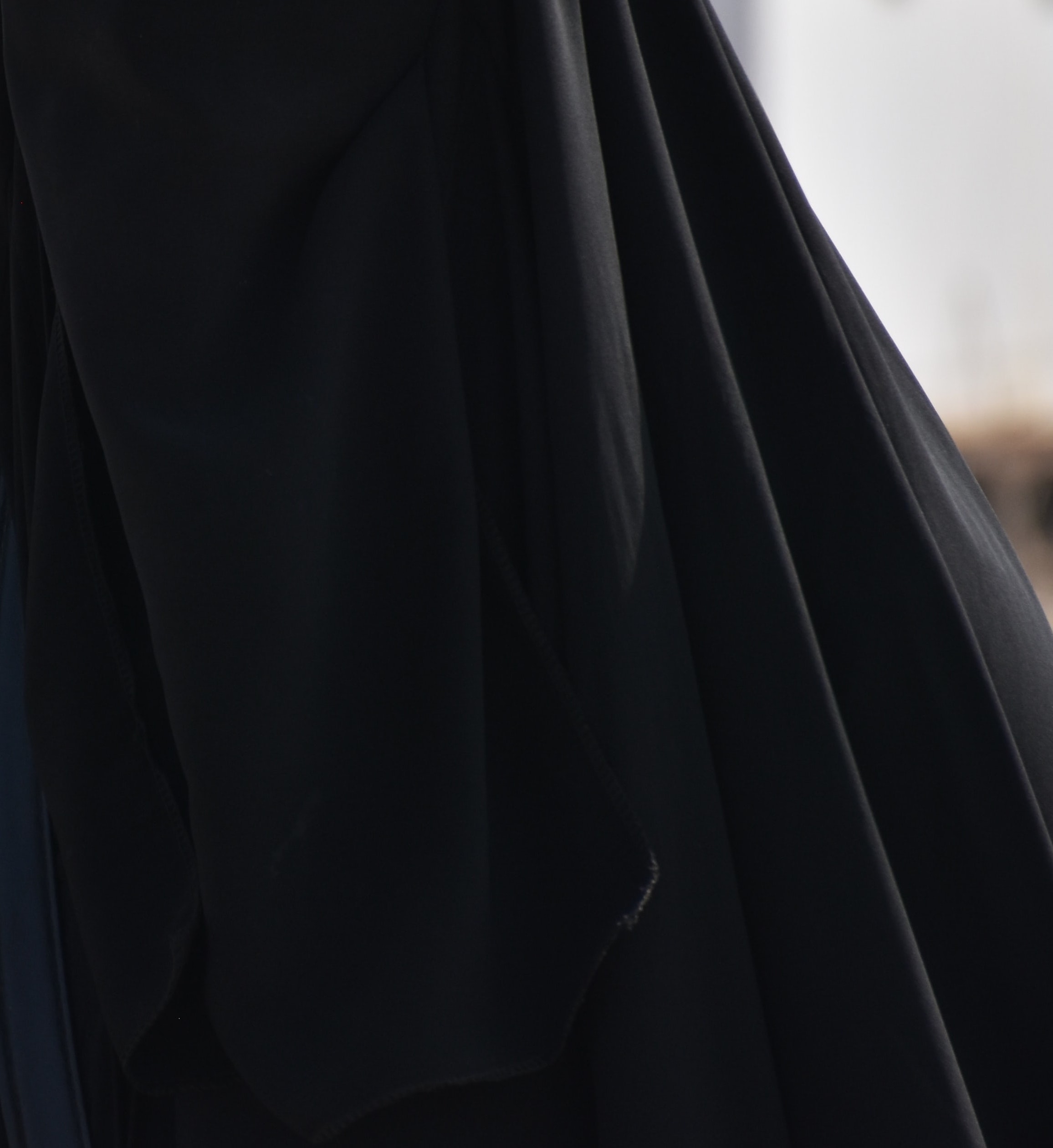
Awrah for women
In Islam, both women and men need to dress modestly and cover their intimate parts. However, awrah extends further than only the intimate parts. Allah stated that women should cover their hair around non-mahram men, their figure, and more.
Awrah in front of non-mahram men
Women must cover certain areas of their body whenever they are around non-mahram men. This is to preserve modesty and to fulfill what Allah has ordered her to do.
The scholars have agreed upon areas of a women's body that must be covered around non-mahram men.
- Hair
- Ears
- Neck
- Bossom
- Figure
- Face
- Hands
- Forearms
- Feet
- Imam Abu Hanifa: everything, except for face, hands, feet.
- Imam Malik: everything, except for face and hands
- Imam al-Shafi'i: everything, except for face and hands
- Imam Ahmad: everything
As for other scholars like Imam al-Tabari, he mentioned that a woman can uncover her face, hands, and forearms up to the elbow.
 وأولى الأقوال في ذلك بالصواب : قول من قال : عني بذلك : الوجه والكفان ، يدخل في ذلك إذا كان كذلك : الكحل ، والخاتم ، والسوار ، والخضاب .
وأولى الأقوال في ذلك بالصواب : قول من قال : عني بذلك : الوجه والكفان ، يدخل في ذلك إذا كان كذلك : الكحل ، والخاتم ، والسوار ، والخضاب .
وإنما قلنا ذلك أولى الأقوال في ذلك بالتأويل ; لإجماع الجميع على أن على كل مصل أن يستر عورته في صلاته ،
وأن للمرأة أن تكشف وجهها وكفيها في صلاتها ، وأن عليها أن تستر ما عدا ذلك من بدنها ، إلا ما روي عن النبي صلى الله عليه وسلم أنه أباح لها أن تبديه من ذراعها إلى قدر النصف.
[تفسير الطبري صفحة 158 جزء 19]
Imam al-Tabari said:
"The most correct interpretation of this is that the 'visible adornments' refer to the face and hands, and this includes kohl, rings, bracelets, and henna.
We say that this explanation is the most correct based on the consensus that every believer must cover their awrah during prayer, and that it is permissible for a woman to reveal her face and hands during prayer. She must cover the rest of her body, except for what the Prophet, peace be upon him, allowed to be shown, namely the forearm to halfway (to the elbow)."
[Tafsir al-Tabari - Volume 19 - Page 158]
Awrah in front of mahram men
Women must maintain modesty around her mahrams, which include father, uncles, brothers, nephews.
- Hair
- Ears
- Face
- Neck
- Hands
- Forearms
- Feet
- Shins
Everything beside these areas must be covered, think of shoulders, bossom, back, and upper legs.
Awrah in front of women
Muslim women are treated the same as with mahram-men. So everything a woman can show her mahram men is also allowed to show Muslim women.
Some scholars have made a distinction between Muslim women and non-Muslim women. They said that women should cover themselves the same way as they would around non-mahram men.
- Hair
- Ears
- Face
- Neck
- Hands
- Forearms
- Feet
- Shins
She is allowed to uncover her body, except for what is between her navel and knees.
However, women must still observe shyness amongst each other by wearing loose and long dresses that do not expose their bossom.
- Imam Abu Hanifa: Face, hands, and feet
- Imam Malik: Face and hands
- Imam al-Shafi'i: Face and hands
- Imam Ahmad: Nothing
This shows that what is covered from Muslim women isn't primarily based on avoiding attraction, rather, it is a form of worship to observe sanctity of the Muslim status.
If her hair was to be covered solely to avoid attraction, then it would have been no issue to uncover it around non-Muslim women.
Awrah in prayer
Scholars have agreed that women must cover in prayer leaving only her face and hands visible. The Hanafi madhab stated that the women's feet are not awrah.


